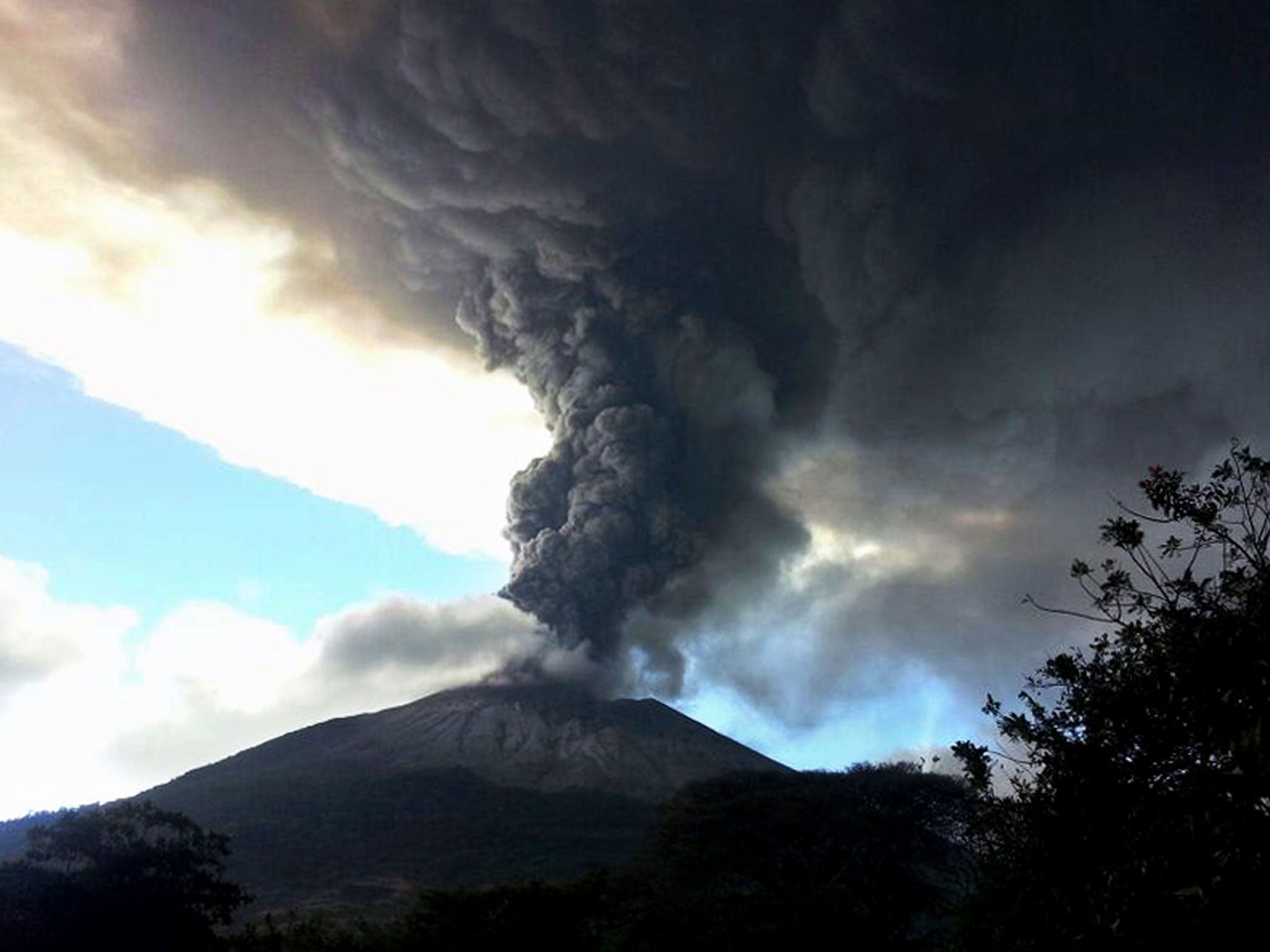El Salvador begins evacuation after Chaparrastique volcano erupts for the first time in 37 years
El Salvador issues yellow alert as evacuation begins in San Miguel

Your support helps us to tell the story
From reproductive rights to climate change to Big Tech, The Independent is on the ground when the story is developing. Whether it's investigating the financials of Elon Musk's pro-Trump PAC or producing our latest documentary, 'The A Word', which shines a light on the American women fighting for reproductive rights, we know how important it is to parse out the facts from the messaging.
At such a critical moment in US history, we need reporters on the ground. Your donation allows us to keep sending journalists to speak to both sides of the story.
The Independent is trusted by Americans across the entire political spectrum. And unlike many other quality news outlets, we choose not to lock Americans out of our reporting and analysis with paywalls. We believe quality journalism should be available to everyone, paid for by those who can afford it.
Your support makes all the difference.Authorities in El Salvador have started to evacuate the municipality of San Miguel after the Chaparrastique volcano erupted on Sunday, shooting a giant ash cloud into the sky.
The government has issued a yellow alert and is expected to evacuate families within 3 kilometers (approximately 2 miles) of the volcano to emergency shelters.
More than 5,000 people live near the volcano according to civil protection officials.
Civil defence director Jorge Melendez said: "We have implemented emergency measures to evacuate villages located within 3 kilometres of the volcano."
There were no immediate reports of serious injuries, although two people are being treated for respiratory problems.
Health authorities recommend breathing through moist handkerchiefs and avoid drinking water from local sources.
The eruption began at 10:30 am local time on Sunday morning and shot a column of gas and ash 5 kilometres (approximately 3 miles) high into the sky, according to El Salvador's ministry of environment and natural resources.
The government is monitoring the situation and searching for traces of fresh lava.
President Mauricio Funes said in a television address: "We are not certain there will be new eruptions, but we can't rule out that possibility either."
The Chaparrastique volcano, which is about 140 kilometres (86 miles) to the east of the capital, last erupted in 1976.
Join our commenting forum
Join thought-provoking conversations, follow other Independent readers and see their replies
Comments